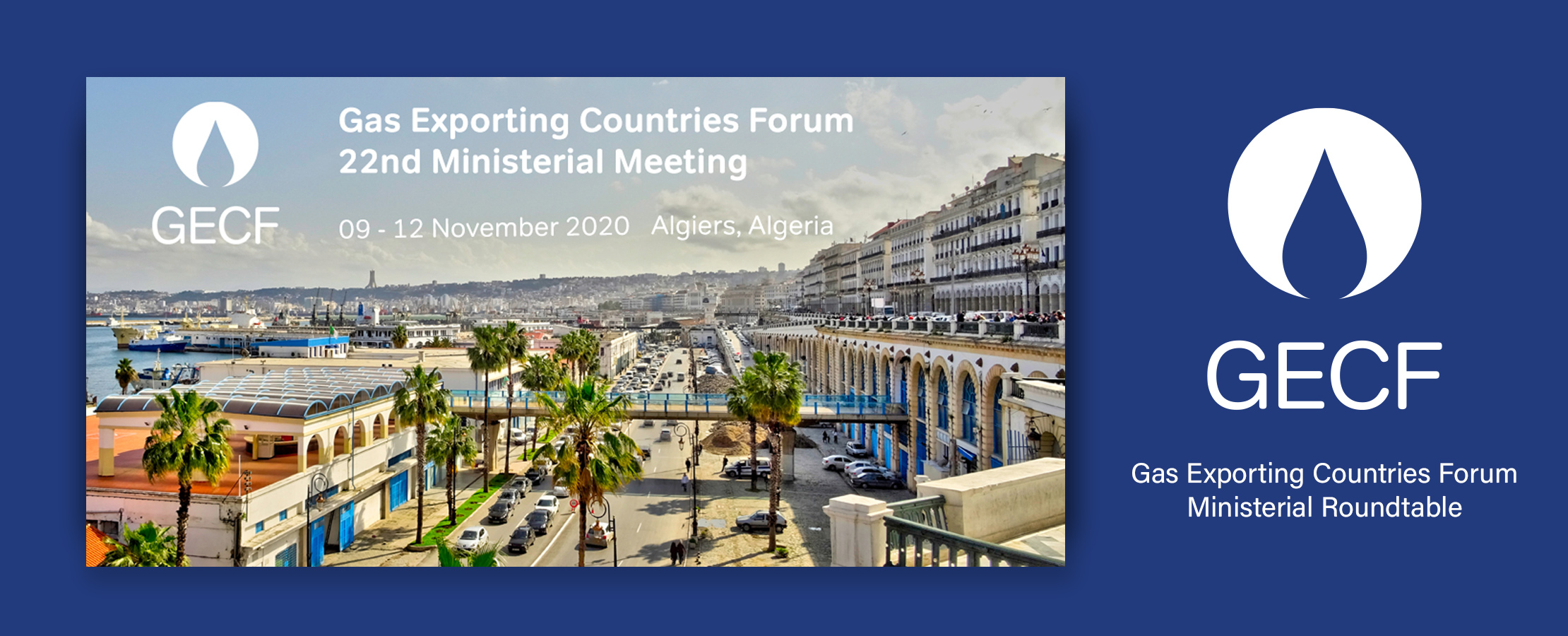22nd Gas Exporting Countries Forum Ministerial Meeting
Algiers, Algeria
IEF Secretary General Joseph McMonigle participated in the 22nd Gas Exporting Countries Forum (GECF) Ministerial Roundtable meeting via video conference hosted by the current GECF Presidency of the Democratic People’s Republic of Algeria from 9-12 November. The 22nd iteration of the meeting explored the role of the natural gas industry and its interconnection with geopolitics, the world economy, and sustainable recovery and growth.
HE Abdelmadjid Attar, Minister of Energy of Algeria and President of the GECF Ministerial and HE Dr Yury Sentyurin, Secretary General of the GECF opened the meeting that discussed the trajectory and role of natural gas in a post-pandemic world. IEF Secretary General McMonigle contributed to the discussion by comparing short-term trends in natural gas demand with longer-term outlooks. Although demand is expected to drop in the short-term, natural gas shows great promise for the future he said based on the following four strengths:
- A support for transitions to clean and sustainable growth through clean technology development.
- A destination for growing populations and future generations to gain access to affordable, modern, and reliable energy.
- A catalyst that enables coupling of different energy technologies from renewables to hydrogen, and
- An accelerator that can build momentum at the scale that green recovery and sustainable growth require.
He emphasised that the COVID-19 pandemic provides governments an opportunity to accelerate transitions by incorporating supportive measures for technology transfer, trade, and most notably to sustain gas sector investment where the pandemic has had a worrisome impact that may lead to increased gas market volatility in the short-term. Maintaining natural gas market stability and growth is vital for producer and consumer countries to reconcile population growth, rapid urbanisation, and increased demands for affordable access to modern energy services with climate change and broader sustainable development goals when pent up demand returns. The Circular Carbon Economy Platform and its 4Rs framework (Reduce, Reuse, Recycle, and Remove), that the G20 Energy Ministers endorsed under the Presidency of Saudi Arabia on 27-28 September, also marks a turning point for the future role of natural gas.
Ultimately, the road towards achieving global climate compliance will come through future technologies that help international gas trade reach greater scale by improving upon existing and new infrastructure.
Regardless of the challenges, Secretary General McMonigle highlighted that like-minded organisations such as the GECF and IEF must move forward together to help mobilise the investment, trade, and technology transfer that will enable the gas sector to deliver on national policy objectives and shared goals.






